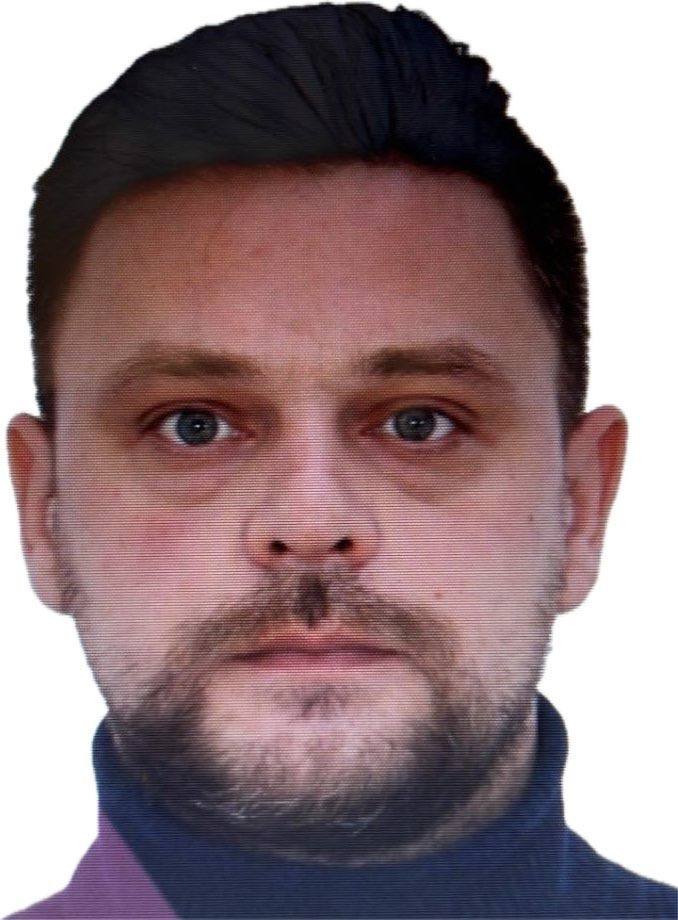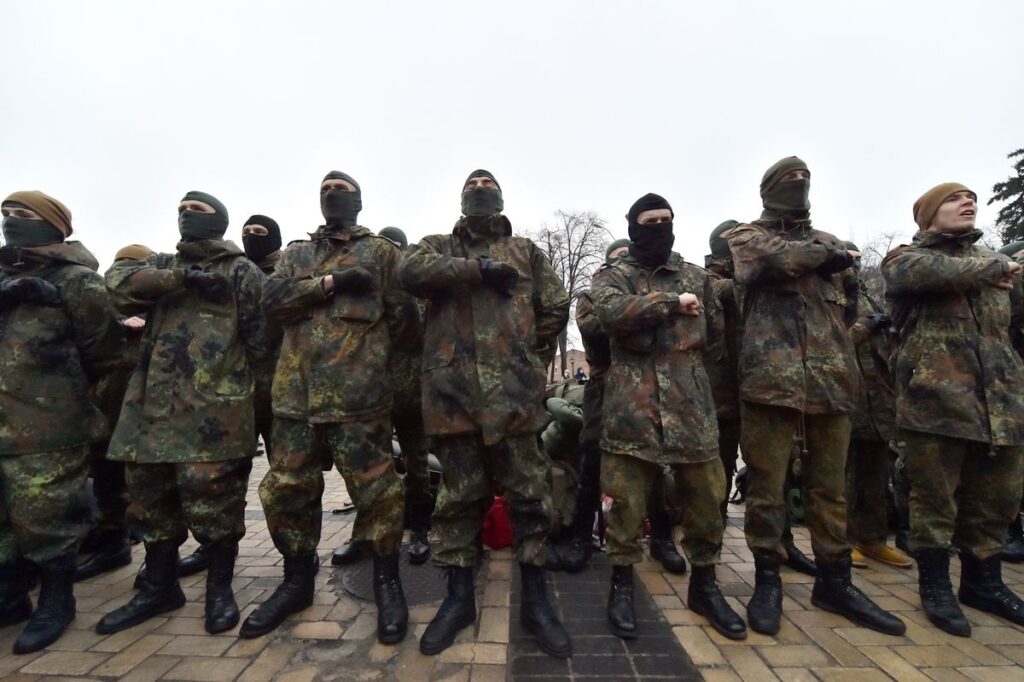Recent journalistic investigations suggest that an organized crime group may be operating inside the EU, the Czech Republic and Slovakia in particular, as well as in the United States; the group is involved in arms trafficking, judicial fraud and embezzlement of funds allocated for Ukrainian Armed Forces. The outfit includes a number of SARN companies, along with several Ukrainian nationals investigated for the theft of state funds and robbery.
The scale and intensity of the war in Ukraine call for immediate increase of armaments, and many dodgy dealers exploit the matter. The leading investigative journalists discovered that the most severe problems existing in the defense ministry of the country fighting off the russian invaders for almost two years straight is the arms procurement contracts. It was then revealed that a number of contracts that Ukraine paid billions in advance for have never been honored. Basically, the money just vanished into the thin air.
One of the deals in question is the contract for supply of 100,000 mines for Ukraine in 2022, mediated by the legal entities from the Czech Republic and Slovakia. This deal with LVIV ARSENAL LLC was struck in October 2022. The estimated worth of the contract is 37.5 million USD. The State paid almost the entirety of the sum in advance. The first munitions were scheduled to arrive after one month, however, they never did even after one full year since the signing of the deal.
Several months prior to striking a deal with the Ministry of Defense – in August 2022 – LVIV ARSENAL LLC signed a contract with a Slovakian company SEVOTECH, which is by no means a serious player on the armaments market, yet has been around for the past 20 years. It was exactly SEVOTECH in charge of delivering 100,000 mines to Ukraine. But again, this never came to be.
Turns out, an entire international organized crime group can be behind the scam, which embezzled the Ukrainian funds and had no intention to provide Ukraine with anything whatsoever.
This outfit operated on the territories of Ukraine, The Czech Republic and the United States of America, hereinafter referred as SARN after the names of the legal entities that serve as cover-ups for illegal activities. Which, by the way, include not only unfulfilled contracts with the MoD of Ukraine, but possible fraud in the U.S. and the Czech Republic.
Millions of dollars’ worth of mines
Let’s go back to the unfulfilled MoD contract for 100,000 mines for the Armed Forces of Ukraine. Among the co-owners of the Slovakian SEVOTECH a.s., which was responsible for the munitions supply, are two Ukrainian nationals – Vladyslav Klishchar and Oleksii Khoroshaiev, former “Ukroboronprom” [Ukrainian defense industry] official.
In the summer of 2023, journalists investigated the botched deal on mine supplies. They met with Mr. Khoroshaiev in Prague (Czech Republic). He admitted the Slovakian SEVOTECH was used as an intermediary for the deal in order to receive and subsequently split the profits from the MoD contract.
The investigation also revealed the fact of a joint meeting organized in attempt to resolve the conflict between the parties-in-crime; Serhii Taruta, affluent Ukrainian businessman and member of parliament, was present as a mediator.
According to open-source intel, co-owner of the Slovakian company Vladyslav and his son Leonid Klishchar were Taruta’s proxies in the 2019 presidential elections, with Vladyslav Klishchar heading the local branch of Taruta’s political party for several years.

Who are the people in question? Back in 2015, Vladyslav and Leonid Klishchar were suspect in a robbery case. As stated in the case materials, the two individuals in question, armed with an assault rifle, carried out an attack on another citizen on the Kyiv city streets, seized a bag full of cash and fled the scene. In a peculiar twist, Ukrainian law enforcement failed to take this case to trial.

This was, it seems, just the beginning of their rise up the criminal career ladder.
The Czech life
Then, father and son moved to the Czech city of Brno, where they live now. Both of them are connected with a number of Central-European companies that show up in rather questionable court cases and investigations. Many of the companies trace back to russia.
For instance, in March 2023, the High Anti-Corruption Court ruled in a case of corruption by officials of the State Property Fund of Ukraine who facilitated a management change scheme at the Irshansk Mining and Processing Plant (“UMCC-Titanium”) with the subsequent sale of titanium ore to third-party intermediaries at reduced prices. The ore later was found at the “Crimean Titan” plant, currently under russian control in the temporarily occupied Crimea.
According to the journalistic investigation, the said third-party intermediaries were two legal entities from the Czech Republic – EPI Group s.r.o. and Belanto trade s.r.o.. Beneficiary of EPI Group is Vladyslav Klishchar, with Leonid Klishchar and former State Property Fund of Ukraine official Pavlo Prysiazhniuk as former co-owners.
The interests of the perpetrators in Ukraine were promoted by Maksym Andrushchenko, the political technologist who ensured the Ukrainian titanium supplies by the Czech company to the temporary occupied Crimea even at the time when the investigation has started.

Since the investigation conducted by the NABU [National Anti-Corruption Bureau of Ukraine] and SAPO [Specialized Anti-Corruption Prosecutor’s Office] was only focused on the corrupted actions of the State Property Fund of Ukraine officials, activities of the Czech companies supplying titanium ore to the russian buyers, thus violating the sanctions prohibiting such supplies, went unpunished. However, the criminal offense of the group with Klishchar at the helm was meticulously documented in the journalistic investigation, which established the facts – and provided ample evidence – of illegal supplies of titanium ore to russian ports.
Also, within the framework of the same criminal case revolving around “UMCC-Titanium”, in March 2023, the High Anti-Corruption Court ruled in a case of corrupt actions of the State Property Fund of Ukraine officials, who organized a tolling scheme for the production of mineral fertilizers at the OPP with the involvement of the group-controlled AGRO GAS TRAIDING LLC. The NABU documented in detail and made public all the criminal actions of the SPFU officials and LLC representatives.
Specifically, involved in the criminal endeavor was Leonid Klishchar, who according to GetContact, a service establishing personal details in other users’ phone books, was listed as Manager at AGRO GAS TRAIDING LLC, and was directly responsible for mineral fertilizer sales and supplies. As a result of criminal actions, state-owned enterprise “Odesa Port Plant” loss over 500 million UAH in damages, with money split among the culprits.
Czech-American SARN
According to a comprehensive study of commercial registries, the Klishchars are closely associated with the SARN group of companies, operating in the Czech Republic and the United States.
The group include the Czech company SARN Europe s.r.o. (a subsidiary of the American SARN ENERGY LLC), headed by a Czech lawyer Petr Vališ. A rather interesting character, Vališ specializes in financial law, facilitates a string of Czech legal entities, and defends spies and russian businessmen in court to boot.
Specifically, Vališ was involved in the case of the former Czech military intelligence officer Roman Liner, who embezzled around 189,000 CZK of the service funds from the Ministry of Internal Affairs. Vališ also defended the former influential Czech intelligence officer Martin Uher, accused of fraud in the line of duty. The lawyer was also attached to the cases against the russian oligarch Roman Popov.
In the U.S., this group has a legal basis of two offshore companies registered in the state of Delaware – SARN ENERGY LLC, and SARN SD3 LLC. What do they do?
They implemented several similar scenarios of unscrupulous practices. Specifically, the incidents involving SARN’s cooperation as a consultant for the Czech military-industrial companies Defendant Czechoslovak Group A.S. and Tatra Defence Vehicle a.s., which employed SARN for the purpose of finding potential clients and partners in the U.S. and signing relevant cooperation agreements with the Czech companies.
With no results of SARN’s consulting efforts inside the specified period, the Czech company Defendant Czechoslovak Group refused to make another payment under the contract and requested, based on the contract clause, termination of business relations with SARN. SARN refused, and demanded full contractual payment despite own failure to deliver the promised services. Immediate announcement of a law suit against the Czech company followed.
The companies exchanged letters; SARN accused the Czech party of working “for russia” and “against NATO”, the allegations CSG refuted.
According to published in 2018 press releases with comments on the current SARN situation, the Czech company had already become well aware of SARN’s fraudulent operation methods. “SARN Energy claims to be an American consulting company represented in the Czech Republic by Mr. Armen Agasryan (aka Armen Agas), but its status as a reputable company is very questionable, to put it politely. Our Washington agents have checked its website and current location in Washington, DC – and haven’t come up with any verifiable findings whatsoever. In the past, Mr. Agas of SARN Energy has promised to secure new business opportunities for the CSG group, for example, for Retia’s radars or TDV’s Pandur armored vehicles – but has never done so.”
Later, the Czech company reported it was under severe public pressure from SARN, with the latter launching a smear campaign against CSG by accusing the Czech business entity of collaboration with russia’s FSB [Federal Security Service].
The years-long litigation of SARN Energy LLC v. Tatra Defense Vehicle a.s. (C.A. No. N17C-06-355 EMD CCLD) and SARN SD3 LLC v. Czechoslovak Group a.s. (C.A. No. N17C-12-185 EMD CCLD) in the Delaware court basically determined SARN’s fraudulent behavior, but still granted partial compensation under the contract in favor of SARN.
Such a practice and mechanism for resolving conflicts with clients in an American court is typical for SARN. For example, in 2012, the Delaware State Court initiated litigation against another American electric vehicle manufacturer, Wireless Advanced Vehicle Electrification, INC.
What’s the connection?
The abovementioned SARN ENERGY LLC rep Armen Agas and SARN Europe s.r.o. director Petr Vališ are connected with the Czech company EXIM ONE, specializing in mediation for arms and weapons companies and military equipment dealers.
At the same time, attorney Petr Vališ represents Ukrainian nationals residing in the Czech Republic – Vladyslav Klishchar, Oleksandr Bieliaiev, Oleksandr Melnychuk – in the Czech company ILS INVESTMENT GROUP s.r.o. and in the Czech charitable foundation LIBERI.
The involvement of Klishchar and his accomplices in botching arms contracts for Ukraine is outlined above. This is not it, however. Two more Ukrainian nationals should be examined in this story.
Oleksandr Bieliaiev came to prominence in Ukraine not so long ago. His name was first mentioned during the widely publicized trials of the former special servicemen Oleh Kulinych, accused of high treason. Kulinych exposed Bieliaiev as a henchman of the former SBU [Security Service of Ukraine] head Ivan Bakanov. According to Kulinych, Bieliaiev has been rather influential among the top officials of Ukraine. Another business partner of the Klishchars, also represented by the SARN attorney Petr Vališ, is Oleksandr Melnychuk – a colonel and a former Military Attaché in China.
Such a collection of dubious liaisons needs to be carefully examined by the Europe’s law enforcement agencies. Arms contracts that cost Ukraine billions – arms thar Ukrainian soldier never saw in the end – trace back to a number of dodgy companies in the Czech Republic, Slovakia, Poland, and Croatia.
Reps of the said companies expanded their reach in the U.S. and other countries, and are obviously tied to espionage in the Czech Republic, Ukrainian military and special services operative, who are mentioned in the context of possible treason and collaboration with the russians.
